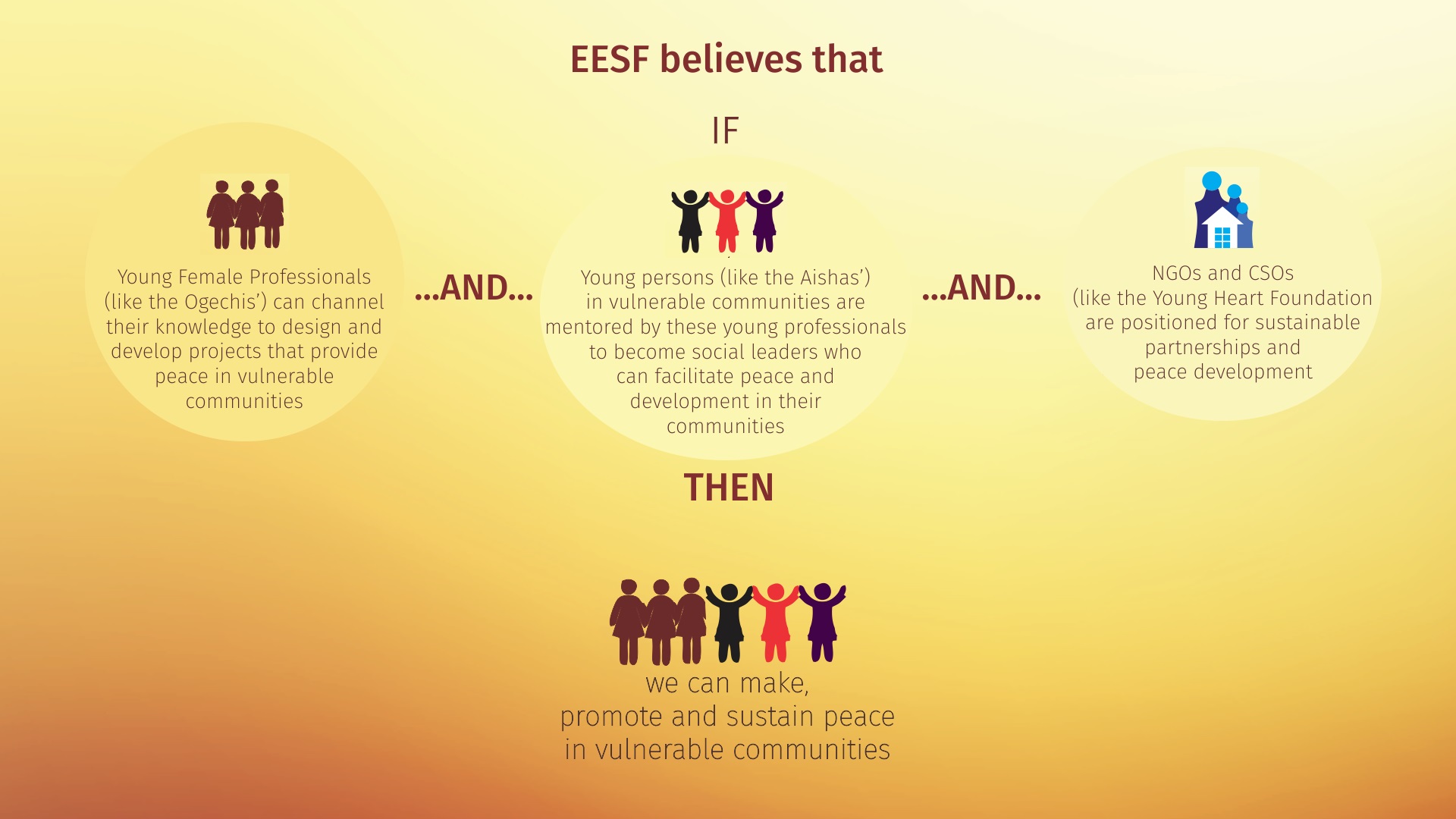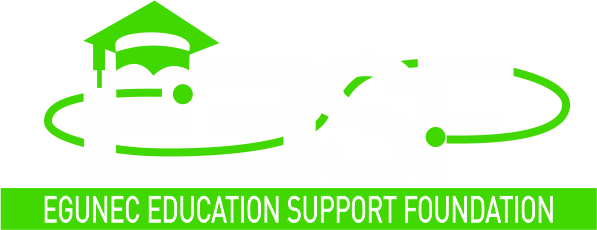THE EESF THEORY OF CHANGE
MEET OGECHI
Ogechi Okoye is light skinned, short amiable young lady with short cropped hair and dark brown eyes. She is a young lawyer who lives in Gwagwalada community, Nigeria. She has a positive vibe around her and you will always see an infectious smile on her lips.
”More”
Ogechi is concerned about the violent extremism, hate speech and other conflict ridden behaviors in her community. Anytime Ogechi reads the news, she has a very strong desire to do something.
Ogechi has the intent and potential to impact and counter the growing seeds of extremism and violence within her community. Sadly this potential is yet to be harnessed as there is no established model that shows her how to channel her knowledge as a young professional into innovative peace-making models relevant to her community.
Ogechi has the knowledge capacity to be a peace-maker and believes that peace begins with her; sadly she lacks the capacity or the role model to make her believe and express her peace-making dreams.
This lack of capacity is accompanied with the fact that development activities like peace-making are not accepted as an entrepreneurial model within her community. This is despite the clear fact that what she has to offer is what her community needs.
To make matter worse, she is a lady and the gender stereotypes against young ladies especially within the North where she lives is very strong. The most recent case of the kidnap of 276 Chibok girls gives her the impression that the average female child is a victim.
Ogechi Okoye is not alone. Millions of young African women intellectuals with amazing knowledge capital just like her lack the capacity to turn this capital and desires into peace-making realities.
”Hide”
MEET AISHA
Aisha is a tall, dark skinned 14 year old girl living in the community of Duari, Abuja Nigeria. She is a dreamer with big and bright hopes for the future. However to get there, Aisha needs to find her assets, identity and purpose. She also has to be able to effectively communicate these assets to persons in her community.
”More”
Unfortunately, Aisha has no peer or role model to look up to neither is there a system in place that guides her to identify her assets, develop and harness them. What Aisha has readily available to her is Duari college where she is currently in SS1.
Duari College is a vulnerable community. Its vulnerability is based on its location in an area typically characterized by poverty, underdevelopment and conflicts. Aisha has to contend with the mind-set of teachers like Uncle Sam. Uncle Sam has been a teacher for 15 years now and is angry at the system for not recognizing him; he is also unhappy at being sent to a community school like Duari when he could have been sent to a city school. Thus Uncle Sam pours his anger and frustration on his students like Aisha who are meant to be his mentees.
These realities usually create a mind-set; what we call a vulnerable mind-set. This mind-set is a strong foundation for conflicts and violence as the teachers, administrators and students in these schools consider themselves to be the least fortunate. This defeatist mind-set is a springboard for anger, strife, hatred, hopelessness etc. These seeds facilitate conflict and violence.
In this type of environment, it is almost impossible to harness Aisha’s rich dreams and its easy for persons like Aisha to derail and imbibe the conflict culture of her environment. Instead of the dreamer Aisha, we are now breeding a mind susceptible to conflicts. This is a growing conflict that needs to be pruned from its roots else we might be breeding the next circle of violence in already vulnerable communities.
Aisha is not alone. There are millions of young boys and girls in vulnerable communities in Africa with the potential for peace leadership who lack adequate mentorship and role models.
”Hide”
MEET YOUNG HEART FOUNDATION
Young Heart foundation is a social organisation established to empower young persons in vulnerable communities. It does its best to offer value; however it faces a lot of limitations and challenges in expressing its mission and mandate. These challenges include:
”More”
- It lacks the capacity to design and develop projects that truly responds to the needs of the Ogechi’s and Aisha’s.
- It lacks the capacity to enter into fruitful and sustainable partnerships with its target communities and development partners
- It lacks the capacity to effective measure and evaluate its impact
- It battles with attracting the right kind of resources to truly achieve its aim
”Hide”



